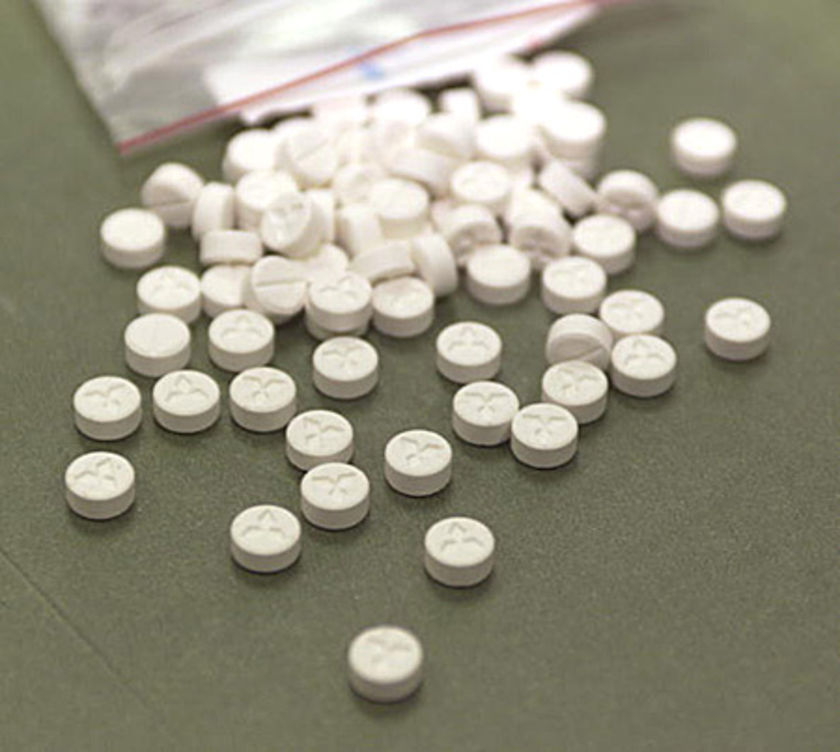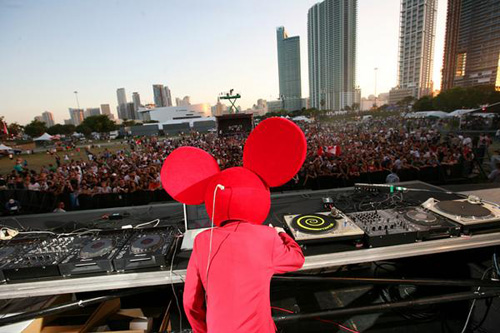Earlier this month, Madonna demonstrated once again how much the bar for controversy has been lowered of late.
Making the tamest of drugs-related innuendo in asking a Miami audience whether they’d “seen Molly”, she drew the ire of superstar DJs Deadmau5 and Paul Van Dyk. The former tut-tutted, “Such a great message for the young music lovers there,” rather like Ann Widdecombe in a Mickey Mouse costume, while that renowned pundit Van Dyk thundered that the most successful woman in pop had made “the biggest mistake of her career”.
“Such a great message for the young music lovers there,” said Deadmau5, rather like Ann Widdecombe in a Mickey Mouse costume.
Tempting as it was to ascribe such interventions to Madonna’s formidable PR team making use of some handy jesters to manufacture an air of rebellion around her, the kerfuffle was more indicative of two things. Firstly, an undercurrent of resentment that someone as old, mainstream and female as Madonna should unashamedly continue to encroach on club culture – never mind that Deadmau5 and Van Dyk, at 30 and 41 respectively, are hardly in the bloom of youth themselves, or that Madonna has been making better house records than either are capable of since they were in school uniforms. Most odd has been the charge that the drug references peppering Madonna’s current album campaign display her desperation to be “down with the kids”, when clubbers worldwide have been ingesting MDMA in copious quantities for the entire length of her career. It makes somewhat more sense to interpret her imagery as an alignment of an iconic pop star with an iconic drug.
But then, it’s hardly surprising that this fairly obvious historical fact has been overlooked. The faux-outrage is also illustrative of a continued refusal to talk about drugs and their relationship to club music in an intelligent, grown-up manner, even among the dance community itself. One expects this sort of sanctimonious, hypocritical, see-no-evil nonsense from politicians, but men who have made vast amounts of money from punters drugged to their eyeballs don’t even have that excuse.
The faux-outrage is illustrative of a continued refusal to talk about drugs and their relationship to club music in an intelligent, grown-up manner.
 For one thing, it’s impossible to divorce the shape of the music being made from a clubbing community’s drug of choice: in order to analyse the music, the effect of the drug has to be taken into account. (This is not the same as having to actually do the drugs oneself, of course – though perhaps the professed unfamiliarity of Deadmau5 and Van Dyk with MDMA could explain their rote, workmanlike music.) Such links have been well documented over the years – the blissful serotonin rush of MDMA and the generous embrace of house music; the ketamine-addled mind’s obsession with hallucinated minutiae and the endless corkscrewing details of some branches of mid-’00s minimal techno; the slow, smoky atmospheres of pre-2007 dubstep and its associations with weed. But there are also hidden effects, not so obvious at the time: the split branches of dubstep have been much discussed, with one branch lurching beerily overground and the other picking up elements of house, garage and R&B to metamorphose underground once again. But how much of that has been attributed to the 2007 smoking ban in England, since when the smell of surreptitious spliffs in club venues has been efficiently eradicated? Of course the vibe of the dancefloor would change accordingly – and of course the music would change with it.
For one thing, it’s impossible to divorce the shape of the music being made from a clubbing community’s drug of choice: in order to analyse the music, the effect of the drug has to be taken into account. (This is not the same as having to actually do the drugs oneself, of course – though perhaps the professed unfamiliarity of Deadmau5 and Van Dyk with MDMA could explain their rote, workmanlike music.) Such links have been well documented over the years – the blissful serotonin rush of MDMA and the generous embrace of house music; the ketamine-addled mind’s obsession with hallucinated minutiae and the endless corkscrewing details of some branches of mid-’00s minimal techno; the slow, smoky atmospheres of pre-2007 dubstep and its associations with weed. But there are also hidden effects, not so obvious at the time: the split branches of dubstep have been much discussed, with one branch lurching beerily overground and the other picking up elements of house, garage and R&B to metamorphose underground once again. But how much of that has been attributed to the 2007 smoking ban in England, since when the smell of surreptitious spliffs in club venues has been efficiently eradicated? Of course the vibe of the dancefloor would change accordingly – and of course the music would change with it.
Discussing drugs properly should be about neither fearmongering nor evangelism.
Discussing drugs properly should be about neither fearmongering nor evangelism – but about seeking to understand how the existing, widespread use of them shapes our quotidian lives in terms that go beyond black-and-white pro or anti stances, including the harm they can cause as one of their many facets. It’s a conversation that is vitally necessary in general terms, not just within the dance community – drug use has been connected to stories as massive as the financial crisis and the phone hacking saga, for example, and it doesn’t take much imagination to link the hubristic nature of those scandals with rampant cocaine abuse in the relevant industries. But if even leading figures in a community which is famously open about such subjects are demanding smelling salts and throwing their hands up in horror at the slightest of references, one must sadly conclude that any sort of sensible debate about drugs is a long, long way off yet.
Alex Macpherson






























